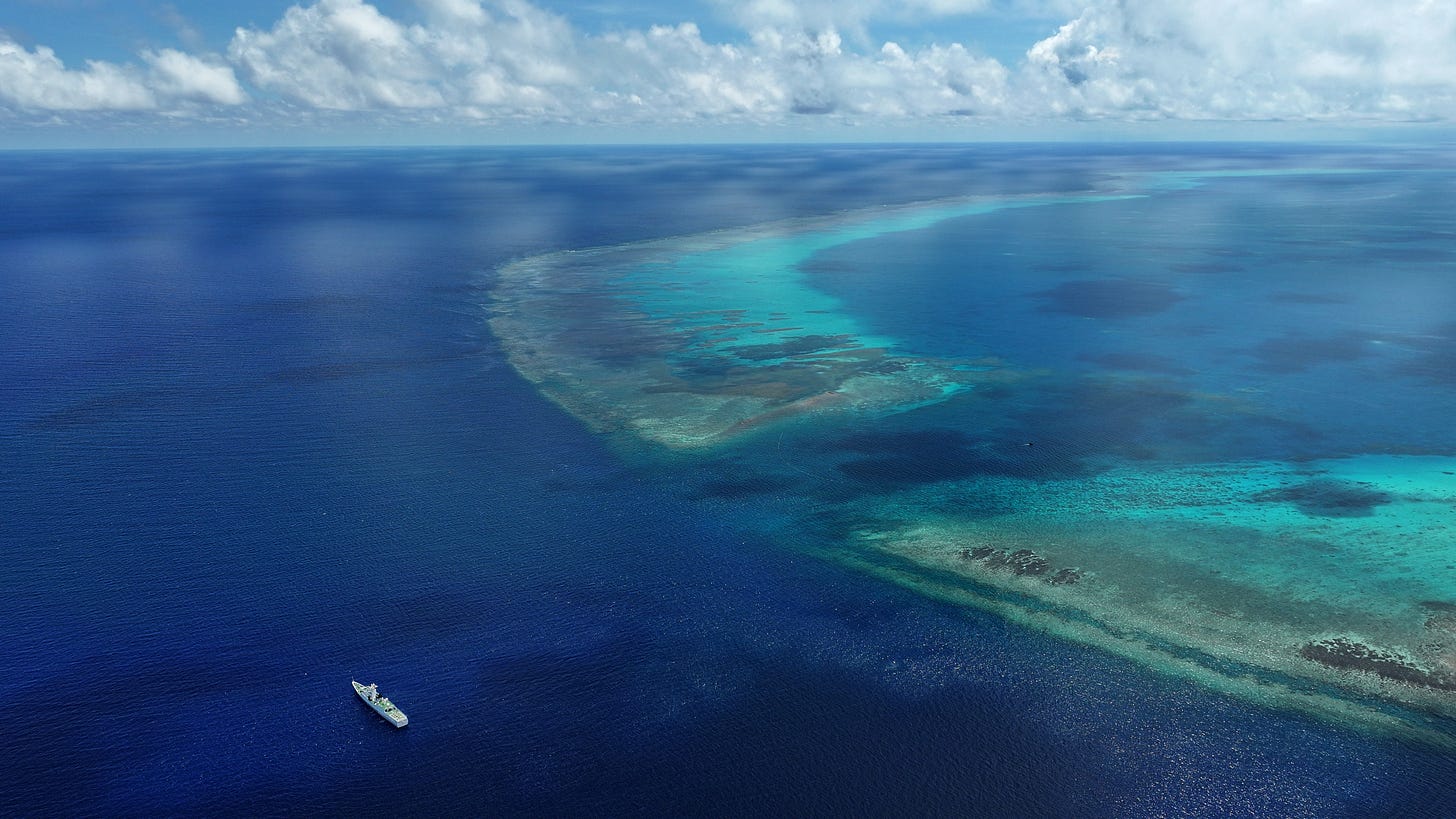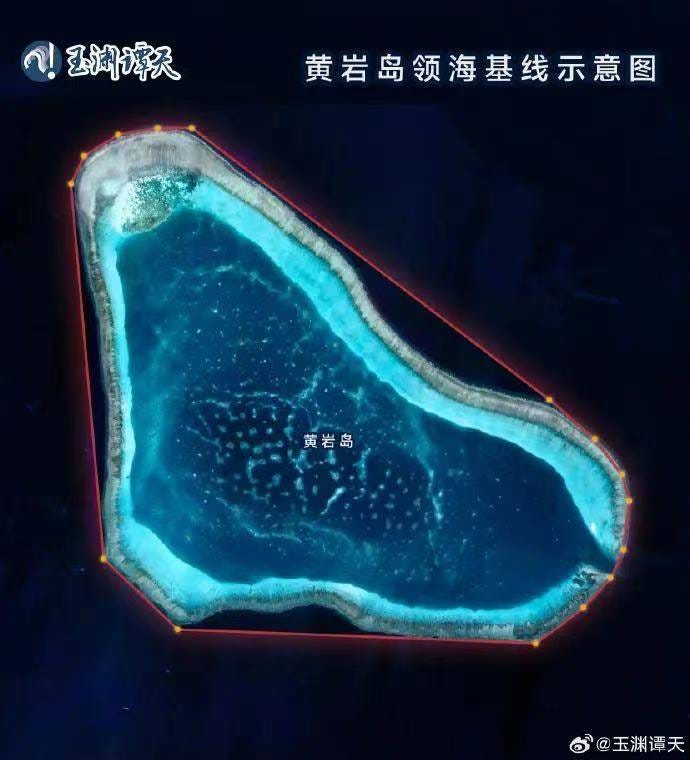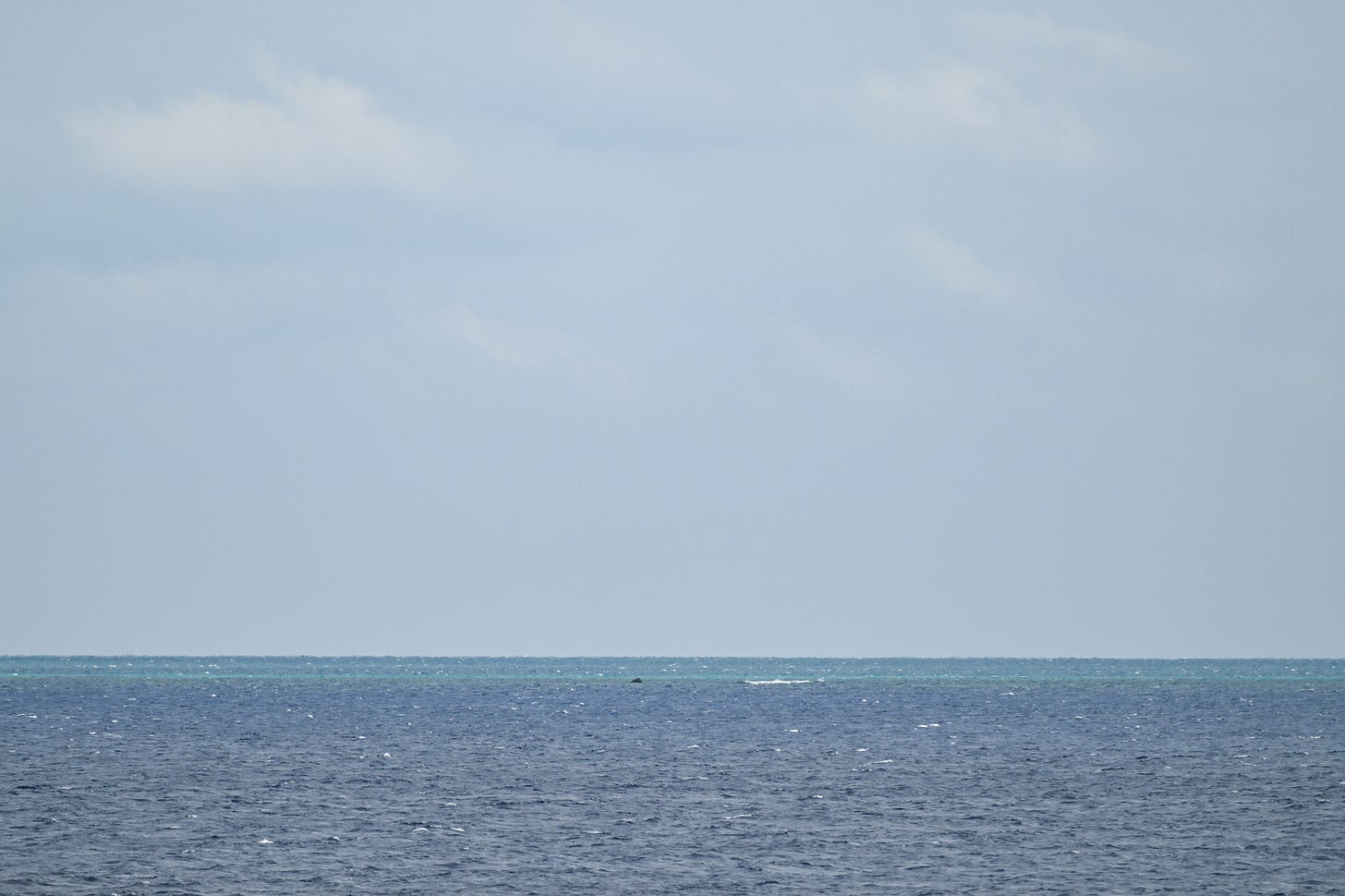Why the Philippines is wrong in enacting laws related to South China Sea? Experts' opinions
An anonymous officer of a relevant law enforcement organ told Beijing Scroll that the China Coast Guard will take stricter measures against the Philippines in Huangyan Dao and surrounding waters.
Aerial view of Huangyan Dao taken by drone in August 2024
Greetings and welcome to the latest entry of Beijing Scroll! Today we are going to discuss the latest developments concerning the South China Sea issue. On Nov. 8, Philippine President Ferdinand Marcos Jr. signed two laws, namely the Philippine Maritime Zones Act and the Philippine Archipelagic Sea Lanes Act.
The Philippine Maritime Zones Act declares Philippine sovereignty and defines sovereign rights over its maritime zone. However, it includes China’s Huangyan Dao (Huangyan Island) and most of the islands and reefs of China’s Nansha Qundao (Nansha Islands).
The Philippine Archipelagic Sea Lanes Act establishes the sea lanes and air routes for foreign vessels and aircraft passing through the waters and adjacent territorial seas of the Philippine archipelago. However, the sea lanes designated by the Philippines do not include all of the commonly used international shipping routes within the waters of the Philippine archipelago.
The Philippines’ move was met with a series of responses from China. Later on the same day, China’s Ministry of Foreign Affairs issued a seven-point statement on the Philippines' moves, denouncing Manila's provocations from the perspectives of history, reality, and international laws.
“We strongly condemn and firmly oppose it,” the ministry’s spokesperson Mao Ning said, who added that China will firmly oppose any infringement activities and provocations by the Philippines in the South China Sea based on the act. China also summoned the Philippine Ambassador to China to make serious protests.
On Nov. 10, the Chinese government delimited and announced the baselines of the territorial sea adjacent to Huangyan Dao, in accordance with the United Nations Convention on the Law of the Sea (UNCLOS), and the Law of the People's Republic of China on the Territorial Sea and the Contiguous Zone. A foreign ministry spokesperson said that it is a natural step to lawfully strengthen marine management and is consistent with international law and common practices.
Also on Nov. 10, the China Coast Guard (CCG) immediately stated that it would continuously strengthen patrols and law enforcement in territorial waters off Huangyan Dao and relevant waters.
An anonymous officer of a relevant law enforcement organ told Beijing Scroll that the CCG will take stricter measures against the Philippines in Huangyan Dao and surrounding waters.
On Nov. 13, the People’s Liberation Army Southern Theater Command said that it conducted combat readiness patrols over the territorial waters and airspace of Huangyan Dao and surrounding areas.
The picture made by Yuyuantantian (玉渊潭天), a Wechat official account run by China Media Group, shows the baselines (in red) of the territorial sea adjacent to Huangyan Dao.
Beijing Scroll has talked with two experts on the South China Sea issue. They are YANG Xiao (杨霄), Deputy Director of the Institute of Maritime Strategy Studies, China Institutes of Contemporary International Relations (CICIR, 中国现代国际关系研究院), and WANG Hanling (王翰灵), an expert on maritime law with the Chinese Academy of Social Sciences (CASS, 中国社会科学院). The two experts gave their viewpoints from the perspectives of international relations and international law, respectively, and analyzed why the Philippines’ acts are wrong and inappropriate.
In a nutshell, YANG Xiao believes that Huangyan Dao has historically been part of China's territory. The Philippines, which did not initially claim the island, began attempting to incorporate it into its territory in recent decades based on a flawed proximity argument. Manila’s two acts attempting to legitimize its claim provoked tensions by supporting extended civilian and militia presence. In response, China has reaffirmed its sovereignty through legal measures and countermeasures in line with international laws. The Philippines must wake up to the reality that provoking China will inevitably lead to countermeasures.
WANG Hanling believes that the two acts are legally ill-grounded, as the alleged legal bases of the acts, including UNCLOS, the so-called 2016 South China Sea arbitral award, and other international law, can not support the provisions and claims in the acts. Ignoring important rules in UNCLOS, which emphasizes "due regard for the sovereignty of all States" and the principle of non-discrimination, the two acts have not only gravely infringed upon China's territorial sovereignty and maritime rights, but also seriously distorted or abused relevant rules of UNCLOS.
The following are key overviews of their viewpoints.
YANG Xiao:
Huangyan Dao has been an inherent part of Chinese territory since ancient times. Not only have Chinese fishermen lived and rested here for generations, but the Chinese government has also continuously and peacefully exercised sovereignty and jurisdiction over the island. This includes ongoing scientific research on the island, effective control over the island and the surrounding waters, as well as active management of nearby fisheries, ecological resources, and environmental protection.
Before 1997, the Philippine government never made any territorial claims over Huangyan Dao. However, as international circumstances evolved, the Philippine authorities have been gradually and systematically attempting to incorporate the island into their territory through actions such as modifying maps, textbooks, and even laws. All of these actions stemmed from a flawed "logic": Huangyan Dao is closer to the Philippines' coastline than to China's.
However, this line of thinking is not only untenable under international law, but it also defies common sense. Should a fruit tree in the backyard of one’s home be handed over to the neighbor just because it is closer to their house than to the owner's?
This year, the Philippine authorities have not only orchestrated a series of dangerous incursions into Huangyan Dao, characterized by civilian movements but also covertly supported disguised militia fishing vessels to remain around the island for prolonged periods. Recently, they even approved the so-called "Maritime Zones Act," attempting to incorporate Huangyan Dao into their territory under the guise of domestic law.
In response, China has decisively implemented strong countermeasures, such as the publication of its territorial sea baseline, to assert its sovereignty and safeguard its territorial integrity.
China's measures are legitimate and in accordance with international law, including UNCLOS, as well as domestic laws. Some politicians in the Philippines must wake up to the reality that provoking China will inevitably lead to countermeasures.
History has repeatedly proven that maintaining peace and prosperity in the South China Sea requires cooperation with China. On the other hand, conflict and confrontation will only provide China with new opportunities that it has to strengthen its territorial sovereignty and advance necessary policies.
WANG Hanling:
The so-called "Philippine Maritime Zones Act" quotes "UNCLOS, the 2016 South China Sea arbitral award, international law, and other pertinent laws and regulations of the Philippines" as the bases for the Philippines to exercise certain maritime rights and jurisdictions.
However, the arbitral tribunal of the 2016 arbitration, which was unilaterally initiated by the Philippines in violation of UNCLOS and other international law, had no jurisdiction over the issue. Its award is illegal and null.
Also, UNCLOS does not support the claims in the act, because it does not deal with disputes regarding territorial sovereignty claims.
UNCLOS provides that it recognizes "the desirability of establishing through this Convention, with due regard for the sovereignty of all States, a legal order for the seas and oceans which will facilitate international communication, and will promote the peaceful uses of the seas and oceans, the equitable and efficient utilization of their resources, the conservation of their living resources, and the study, protection, and preservation of the marine environment."
It means that UNCLOS only deals with relevant legal order for the seas and oceans -- issues such as the limits of the territorial sea, the determination of the baselines, and passage in relevant waters, among others--on the condition that territorial sovereignty is clearly defined.
As for territorial sovereignty-related claims, UNCLOS affirms that "matters not regulated by this Convention continue to be governed by the rules and principles of general international law."
The so-called "Maritime Zones Act," by citing UNCLOS but illegally including China's Huangyan Dao, most of the islands and reefs of China's Nansha Qundao, and their relevant waters into the Philippines' maritime zones, is not only a grave infringement upon China's territorial sovereignty and maritime rights but also a deliberate distortion of the Convention and other relevant rules of international law.
Also, various parts of the "Philippine Archipelagic Sea Lanes Act" are incompatible with UNCLOS and other international laws and rules of the International Maritime Organization.
For example, the "reciprocity and mutual respect" section of the act claims that "The rights and privileges of foreign ships and aircraft in Philippine archipelagic waters herein provided are recognized under conditions of reciprocity and mutual respect;" and that foreign ships and aircraft that are "in violation of Philippine sovereignty, sovereign rights, or jurisdiction, or resulting in injury or damage, shall not be entitled to exercise the rights, nor be owed the obligations, relative to the regime of archipelagic waters and the right of archipelagic sea lanes passage under Part IV of UNCLOS."
That means the Philippines may exercise arbitrary and excessive restrictions on or even expel ships from China or other countries at will.
UNCLOS does not support the “reciprocity” requirements for the right of archipelagic sea lanes passage. Article 53 stipulates that "all ships and aircraft enjoy the right of archipelagic sea lanes passage in such sea lanes and air routes." Also, such a provision ignores the principle of non-discrimination, which is stressed on multiple occasions in UNCLOS.
The extra requirements for archipelagic sea lanes passage is a caprice expansion of restrictions by the Philippines, which has abused its rights under UNCLOS.
Photo of Huanyan Dao, on July 5, 2024, taken by Xinhua photojournalist SUN Ruibo











